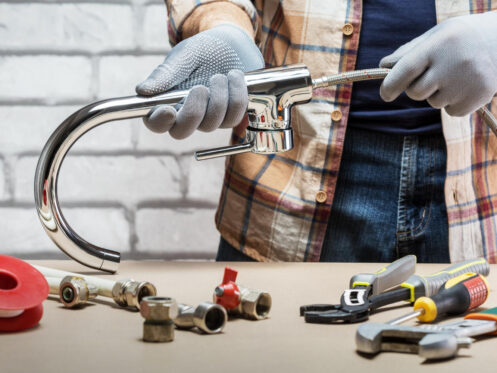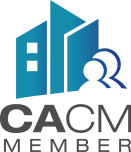Selecting a plumbing company with proper licensing, insurance, and a proven track record of experience is essential for ensuring quality service and protecting your property investments. It’s important to verify their credentials, check customer reviews, and compare pricing from multiple companies. Look for plumbers who specialize in commercial properties and demonstrate clear communication skills.
Plumbing is top of the priority list for property maintenance, and a reliable plumbing partner becomes invaluable when emergencies occur, so taking time to establish this relationship before problems develop is a smart management strategy.
Understanding the Role of Plumbing Providers in Property Management
Plumbing providers are essential partners for property managers in maintaining functional and safe living environments. They handle everything from routine maintenance to emergencies that could otherwise lead to property damage and tenant dissatisfaction.
Key Responsibilities of Plumbing Providers
Plumbing providers handle a wide range of tasks crucial to property management success. Their primary responsibilities include:
- Preventive maintenance: Regular inspections of pipes, fixtures, and water heaters to prevent major issues.
- Repairs and replacements: Fixing leaky faucets, clogged drains, and broken toilets promptly.
- Code compliance: Ensuring all plumbing work meets local building codes and regulations.
- System upgrades: Recommending and installing more efficient plumbing systems when necessary.
They also provide expert advice on water conservation measures to reduce utility costs. This guidance helps property managers make informed decisions about maintenance schedules and budget allocation. Their specialized knowledge helps identify potential problems before they escalate into costly emergencies, which is particularly valuable for older properties with aging plumbing systems.
Balancing Maintenance and Emergency Repairs
Effective property management requires striking the right balance between routine maintenance and emergency response capabilities. We find that having a reliable plumbing provider on call is essential.
Scheduled maintenance might include:
- Quarterly inspections of common area plumbing
- Annual water heater maintenance
- Seasonal checks for outdoor spigots and irrigation systems
Emergency services typically cover:
- Burst pipes and major leaks
- Sewer backups
- No hot water situations
- Complete drain blockages
The best plumbing providers offer flexible scheduling for routine work while maintaining quick response times for emergencies. This balance helps property managers avoid the higher costs associated with emergency-only relationships. A good provider will also help develop a preventive maintenance plan tailored to each property’s specific needs and age.
Collaboration Between Property Managers and Landlords
Successful plumbing management requires clear communication between property managers, landlords, and plumbing providers. For an effective strategy, it’s important to establish well-defined protocols for decision-making and expense approval.
Property managers typically:
- Serve as the primary contact for tenants reporting plumbing issues
- Coordinate access for plumbers to enter units
- Document all plumbing work for the landlord’s records
- Manage costs within approved budgets
Landlords generally:
- Set maintenance budgets and approve major repairs
- Make final decisions on system replacements
- Review regular maintenance reports
- Fund emergency repair reserves
A written agreement should outline response times, pricing structures, and approval processes for different types of plumbing work. Regular meetings between all parties help keep everyone informed about the property’s plumbing conditions and upcoming needs.
Evaluating and Comparing Plumbing Providers
Once you’ve found potential plumbing providers, compare them carefully. Thorough evaluation helps property managers avoid costly mistakes and ensures reliable service.
Checking Credentials and Compliance
Always verify that plumbing providers have proper licensing for your area. Different states and municipalities have various requirements, so check with your local licensing board. Professional certifications show additional expertise and commitment to quality. Look for plumbers certified by recognized industry organizations like the Plumbing-Heating-Cooling Contractors Association.
Insurance and bonding are non-negotiable. Ask for proof of:
- General liability insurance
- Workers’ compensation
- Professional liability coverage
- Surety bonds
Experience matters significantly, so choose companies with at least 5-10 years of commercial property experience. This ensures they understand the unique challenges of multi-unit buildings and commercial spaces.
Reviewing Reputation and Referrals
Check the Better Business Bureau (BBB) rating of each provider. An A+ rating indicates excellent customer service and minimal complaints. Pay attention to how companies handle the complaints they do receive. Online reviews also provide valuable insights into reliability and quality. Review platforms like Google, Yelp, and specialized contractor sites can reveal patterns in service quality.
Plumbers who are active in professional associations often maintain higher standards. Also, don’t hesitate to ask for references from similar properties. Speaking with other property managers about their experiences gives you real-world feedback about:
- Response times
- Quality of work
- Communication
- Problem-solving abilities
Assessing Insurance and Warranty Coverage
Comprehensive insurance protects you from liability if accidents happen on your property. Request certificates of insurance and verify that coverage amounts meet your property’s needs. It’s also essential to get warranty details in writing before signing any contracts. Clear documentation prevents misunderstandings about what’s covered.
Workmanship warranties are crucial indicators of confidence and quality, and the best plumbing providers offer robust warranties on their labor, typically 1-3 years. Additionally, confirm there are manufacturer warranties on parts and equipment. Quality plumbers use industry-leading products with strong warranty coverage.
Top Considerations for Selecting the Right Plumbing Provider
Finding the right plumbing service for your property management needs requires careful evaluation of several key factors. The ideal provider should understand the unique challenges of commercial properties and be equipped to handle them efficiently.
Experience with Commercial Real Estate and Rental Properties
When selecting a plumbing provider, prioritize companies with extensive experience in commercial real estate. Unlike residential properties, commercial buildings have complex plumbing systems that serve multiple tenants simultaneously. Look for providers who have worked with similar properties in your portfolio. A plumber familiar with apartment complexes, office buildings, or retail spaces will better understand the unique challenges.
Ask potential providers about their track record with rental properties specifically. They should demonstrate knowledge of landlord-tenant laws regarding plumbing issues and understand the importance of minimizing disruption to your tenants’ lives or businesses.
Key questions to ask:
- How many years have you worked with commercial properties?
- Can you provide references from other property managers?
- What percentage of your business involves rental properties?
Capability to Handle Commercial HVAC and Related Systems
Commercial plumbing often intersects with HVAC systems, especially in larger properties, and your provider should offer comprehensive services that address this connection. Select a company that can handle both plumbing and HVAC-related issues. This integration prevents the common problem of providers blaming each other when issues arise at system connection points.
Essential capabilities to look for:
- Experience with commercial boilers and water heaters
- Knowledge of backflow prevention systems
- Familiarity with building codes specific to commercial HVAC
- Ability to service cooling towers and their plumbing components
Verify that the provider has certified technicians who understand the relationship between plumbing and HVAC systems. This expertise becomes particularly valuable during major renovations or system upgrades.
Responsiveness to Tenant Needs and Emergencies
A plumbing provider’s response time can significantly impact tenant satisfaction and prevent costly damage. Top providers offer 24/7 emergency services with guaranteed response windows, so ask about their protocol for handling after-hours calls. Do they have dedicated emergency teams? What’s their average response time for urgent situations?
Emergency readiness indicators:
- Multiple service vehicles equipped for common emergencies
- Clear communication systems for dispatching technicians
- Transparent pricing for emergency services
- Ability to prioritize truly urgent matters
Remember, providers with dedicated account managers often deliver more consistent service to property managers, as they become familiar with your properties’ specific needs over time.
Managing Plumbing Services and Long-Term Relationships
Building strong relationships with reliable plumbing providers saves time and money while preventing major property issues. Good management of these relationships requires clear agreements, proper dispute handling, and protecting tenants’ financial interests.
Service Agreements and Rental Agreement Provisions
Service agreements with plumbing companies should clearly outline response times, pricing structures, and emergency protocols. Negotiate annual maintenance contracts that include regular inspections of common plumbing systems, specifying the tenant’s responsibilities regarding plumbing maintenance. Include clauses about:
- Reporting leaks promptly
- Proper use of drains and toilets
- Winterizing procedures for cold climates
- Access requirements for plumbing repairs
A well-drafted rental agreement prevents misunderstandings about who pays for what repairs. For example, specify that tenants are responsible for clogs caused by improper use, while structural plumbing issues remain the property manager’s responsibility.
Handling Disputes and Small Claims Court
When disputes arise with plumbing providers, document everything, keeping all invoices, communications, and photos of work performed or problems encountered.
Try resolving issues directly first by:
- Requesting a meeting with the plumbing company manager
- Clearly explaining the problem and the desired resolution
- Proposing a fair compromise when appropriate
If direct negotiation fails, consider mediation before proceeding to small claims court. Most plumbing disputes fall within small claims limits ($5,000-$10,000 in most states). When filing in small claims court, prepare a concise timeline of events, gather all documentation, and bring any witnesses who observed the disputed work.
Protecting Security Deposits During Plumbing Repairs
Security deposits require careful handling when plumbing issues arise, and you must distinguish between normal wear and tenant-caused damage. Document the condition of all plumbing fixtures during move-in inspections with photos and detailed notes, as this documentation proves invaluable when assessing damage later.
When tenants move out:
- Inspect all plumbing fixtures thoroughly
- Document any damage beyond normal wear
- Get professional repair estimates when needed
If using security deposits for plumbing repairs, provide tenants with itemized statements showing repair costs. Many states require returning remaining deposits within 14-30 days. Create a fair system for prorating costs when plumbing issues result from tenant actions and normal aging of systems.
Contact us to discuss our commercial plumbing services.












